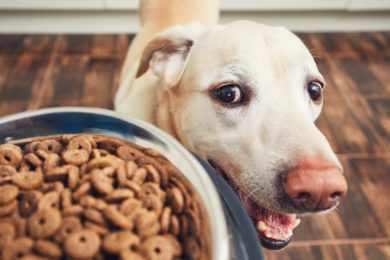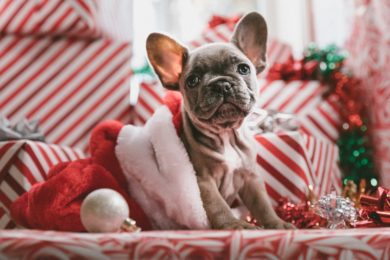As the days begin to shorten and the leaves begin to change colors it’s clear that fall is on its way! With the changing seasons come a new set of dangers for your pets! These are our Fall Pet Safety Tips to help you navigate Fall:
Keep an eye out for:
Apples: A bite of apple isn’t going to do your pup any harm but if you catch your dog snacking on some rotting crab apples while on a walk it can irritate their digestive system. The stems, seeds and leaves of apple trees can also upset their tummies.
Ticks: Piles of leaves and brush are the perfect place for ticks to hide out until they can hitch a ride on your pet. Always check your pets for ticks after they come in from being outside. Here’s how to remove a tick from your pet/
Other Animals: With winter just around the corner, there are lots of critters running around getting ready for the cold weather. You don’t want your outdoor cat having an encounter raccoon or chasing down a bat and you don’t want your pup chasing squirrels onto the road.
Mushrooms: With the humid weather, fall is the perfect time for your pup to go foraging for some mushrooms to snack on while you’re out on a walk. Some mushrooms are harmless but it’s important to keep an eye out for mushrooms on your hikes that could be toxic for your pets. Here’s a list of 5 common poisonous mushrooms:
Beware of:
Rodenticide: Fall is the time of year when mice, rats, and other rodents start to scurry for warmth into your house. If you are on the defensive with rodents in your house, make sure you put any rodenticide or traps out of our pet’s reach. If it’s bad for rodents its bad for your pets as well!
Antifreeze: This is the time of year when people will start to winterize their cars and that can be dangerous for your pets. Ethylene glycol, a substance in antifreeze, has a sweet smell that your pets will find delicious. Because of this, antifreeze poisoning is one of the most common forms of poisoning in pets. If you suspect your pet has ingested antifreeze act quickly to get them to a vet. Do not induce vomiting unless instructed to by your vet as it can be more harmful.
Cold weather: Your pet might have spent all summer outdoors but with the colder weather it’s important that you don’t leave your pets outside for too long. If your outdoor cat was staying out all night all summer it might be time to start calling them inside for the chillier nights! Remember that when your pets are colder, they are also burning more calories! Don’t forget to adjust their food accordingly!
Fall Pet Safety Tips Bonus: Thanksgiving:
Foods to avoid:
- Bread: Yeasted doughs can cause painful gas and bloat in your pets
- Sweets: Keep your pet away from any sweets or chocolates that may come out during your Thanksgiving feast.
- Bones: Be careful where you put those turkey bones! Cooked chicken and turkey bones can splinter and cause damage to your pet’s stomach and intestines.
Party Precautions:
- Remind your guests that it is your pet’s house too! Having visitors in the house can be stressful for your pets. Allow them to hide if they feel more comfortable that way and remind your guests to watch out for pets underfoot!
- Watch your pets around decorations and decorative plants! Tinsel, twinkle lights, paper decorations or decorative gourds can look like fun toys to your pets. Make sure any decorations are out of reach of your pets. Decorative plants can also be harmful to your pets. Here’s a list of common dangerous plants.
Pumpkin Fact!
Did you know that pumpkin can help your pooch’s digestion? Cooked, unsweetened pumpkin, like the kind from a can, is high in fiber and beta-carotene (which the body converts to vitamin A) and can help your puppy with both constipation and diarrhea! 🎃
We hope these Fall Pet Safety Tips will allow you to make the most out of this beautiful season with your fuzzy friend. Let us know what other tips you have in the comments!


